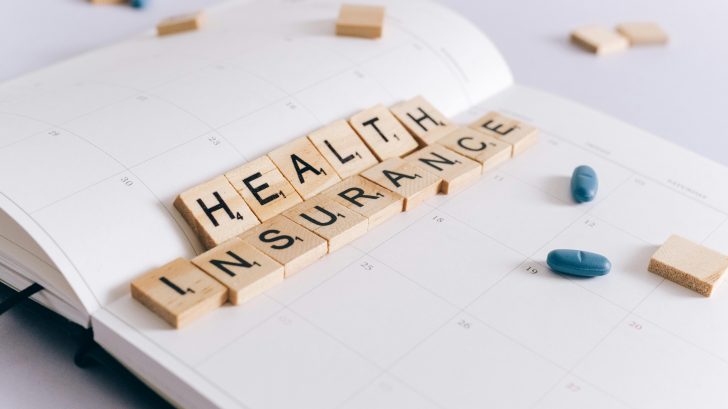Health insurance is an important part of staying protected against unexpected medical costs. But sometimes, people wonder: can you cancel health insurance at any time? Whether you’re switching plans, starting a new job, or trying to cut costs, it’s important to understand the rules before making a change. This guide breaks it all down in simple terms.
Can You Cancel Health Insurance at Any Time?

The short answer is: it depends on the type of plan you have.
You can cancel some types of health insurance whenever you want. But with others, you may have to wait for certain times of the year or meet special conditions.
Here’s how it works:
1. Canceling Employer-Sponsored Health Insurance
If your health insurance comes through your job, canceling it usually isn’t as simple as just calling HR and opting out. Most employer-sponsored plans have rules in place to make sure changes are made at specific times or under certain conditions.
When Can You Cancel:
During Open Enrollment: This is a set window—usually once a year—when you can enroll, change, or cancel your benefits. Your employer will notify you when this period is approaching, and it’s typically in the fall. If you want to cancel, this is the easiest and most straightforward time to do it.
After a Qualifying Life Event: If something major changes in your life, like:
- Getting married or divorced
- Having a baby or adopting a child
- Losing coverage elsewhere (like through a spouse)
- Moving to a new state or area with different coverage needs
Then you qualify for a Special Enrollment Period (SEP)—usually 30 to 60 days after the event. This allows you to make changes to your plan, including cancellation.
Outside of These Periods: If it’s not open enrollment and you haven’t had a qualifying event, you’ll likely need to wait until the next open enrollment to cancel. Some employers might make exceptions, but it’s rare.
Why the Rules Exist:
These rules are in place to keep the insurance system fair and financially stable. If people could drop coverage when they’re healthy and rejoin only when sick, premiums would skyrocket for everyone. That’s why insurers and employers limit when cancellations and changes can happen.
Things to Consider Before Canceling:
- Check with HR or your benefits administrator to understand the exact process.
- Review your alternative coverage options, like a spouse’s plan, COBRA, or Marketplace insurance.
- Understand the consequences of being uninsured, especially if it affects your ability to enroll again or qualify for subsidies later.
2. Canceling Marketplace (ACA) Health Insurance
If you purchased your health insurance through the Affordable Care Act (ACA) Marketplace, you have more flexibility than with employer-sponsored plans. These policies are made for individuals and families who buy their own insurance rather than getting it through a job.
Yes, You Can Cancel Anytime
The good news is that you’re allowed to cancel your Marketplace plan at any time. There’s no need to wait for open enrollment or have a qualifying life event. But just because you can cancel doesn’t mean you should do it without a plan.
Be cautious—canceling your plan could leave you without coverage. If you get sick or injured and don’t have another plan in place, you could face big medical bills. Also, while the federal tax penalty for not having insurance was removed in many states, some states still charge a fee if you go without coverage.
How to Cancel:
Canceling your ACA plan is a simple process if you follow these steps:
- Log into your HealthCare.gov account (or your state’s health insurance marketplace if you live in a state with its own site).
- Go to your current plan under your account dashboard.
- Click “End (Terminate) Coverage.”
- Choose the date you want coverage to end. You can often set it to end immediately or on a future date.
Make sure you complete all the steps. If you don’t choose an end date or confirm your cancellation, your plan might stay active—and you could still be charged premiums.
Important Warning About Family Coverage:
If you’re the primary account holder and your plan covers other people—like your spouse or children—canceling the plan could cancel their coverage too. This could leave them without health insurance unexpectedly.
If you’re trying to cancel only your part of the plan (but leave your family members covered), you’ll need to call the Marketplace directly for help. Online cancellation may not give you that option.
Before You Cancel:
- Line up other coverage first. Consider your options—like employer-sponsored insurance, Medicaid, or another Marketplace plan.
- Understand the gap risks. Being without insurance even for a short time can be risky if something happens.
- Avoid double coverage. If you’re switching to a new plan, make sure your old one ends after the new one starts to prevent a gap.
3. Canceling Private Health Insurance (Direct From an Insurer)
If you bought your health insurance directly from an insurance company—not through your employer or the ACA Marketplace—you usually have the freedom to cancel at any time. These are often called private or individual health insurance plans.
Unlike employer-based or Marketplace plans, there are fewer rules about when you can cancel. But that doesn’t mean there are no steps or things to consider.
How to Cancel:
Canceling a private plan is usually simple, but it depends on your insurance provider. Follow these steps:
- Contact the insurance company’s customer service line. You can usually find the number on your ID card or the company’s website.
- Ask if they need anything in writing. Some insurers require a written cancellation request or an official form. Others may let you cancel over the phone.
- Submit the required paperwork, if needed.
- Request confirmation in writing. Ask them to send you an email or letter that shows the cancellation date and details. This can protect you if there are billing issues later.
Keep in Mind:
Before you cancel your plan, it’s important to think ahead:
- Have another plan ready. Unless you’re switching to a new policy right away, canceling in the middle of the year could leave you uninsured.
- Avoid gaps in coverage. Medical care without insurance can be extremely expensive—even a short gap can cause financial strain.
- You may not get a refund. If you prepaid for the month, some companies won’t refund unused days. Always check your policy’s terms.
Tip: Timing Is Key
Try to line up your new insurance so it starts the same day—or before—your current plan ends. That way, you avoid being stuck without coverage if an emergency happens.
4. Canceling Medicaid or CHIP
Medicaid and the Children’s Health Insurance Program (CHIP) provide free or low-cost health insurance to individuals and families with limited income. These programs are run by each state, so the exact rules and process may vary depending on where you live.
Can You Cancel?
Yes, you can cancel Medicaid or CHIP coverage at any time. However, make sure you really want to end it—because getting it back may take time and paperwork.
How to Cancel:
To cancel your Medicaid or CHIP coverage, you can:
- Call your state’s Medicaid office. You’ll likely speak with a caseworker who can help you complete the process.
- Use your state’s online portal. Some states let you cancel or report changes in your income or household through their website.
- Mail or fax a written request. This depends on your state’s process. Always confirm it’s received.
You can find your state’s contact information by visiting Medicaid.gov.
Things to Know Before Canceling:
- You may have to reapply and requalify later. If your situation changes and you want coverage again, you’ll need to go through the application process.
- Coverage can take time to restart. Even if you still qualify, it might take days or weeks to get your benefits back.
- Don’t cancel until you’re covered elsewhere. If you’re switching to a new plan, make sure it starts before or on the same day your Medicaid or CHIP ends.
Tip: Update Instead of Canceling
If your income or household size has changed, you may not need to cancel—just update your information. This could help you qualify for a different level of help or transition to another program like the ACA Marketplace.
What Happens When You Cancel Health Insurance?

Before you cancel, think about what happens next.
You Might Have a Gap in Coverage
Health problems don’t wait. If you cancel your plan and don’t get a new one, you could end up paying big bills out of pocket.
You Could Face Tax Penalties (in Some States)
While the federal penalty for not having insurance is gone, some states like California, Massachusetts, and New Jersey still charge you for going uninsured.
You May Have to Wait for Open Enrollment
If you cancel without a qualifying event, you may not be able to enroll in a new plan until the next open enrollment period.
When Should You Cancel Health Insurance?
Canceling health insurance is a big step. Ask yourself these questions first:
1. Do I Have Another Plan Ready?
Never cancel without having a new plan lined up, unless you’re 100% sure you won’t need coverage for a while.
2. Am I Switching to a Better or More Affordable Plan?
If you’re getting a better deal somewhere else, go for it—but time it right so there’s no gap.
3. Am I Leaving a Job That Offers Health Insurance?
If you’re quitting or retiring, make sure you understand your options like COBRA or a special enrollment period.
Alternatives to Canceling
If your plan is too expensive or no longer meets your needs, cancellation isn’t your only option. Consider these alternatives:
Change Your Plan During Open Enrollment
Most plans let you switch to a different level of coverage once a year.
Apply for a Subsidy
If you qualify for financial help through the ACA, you could get a cheaper plan with similar or better coverage.
Use a Short-Term Health Plan
These are cheaper and offer basic protection for up to 12 months—but they often don’t cover things like pre-existing conditions or maternity care.
Special Enrollment Periods: What They Are & How They Help
A Special Enrollment Period (SEP) is a window of time outside of open enrollment when you can sign up for a new health plan.
You May Qualify If:
- You lose your job
- You get married or divorced
- You move to a new ZIP code
- You have a baby or adopt a child
- Your current plan ends
If you cancel your current plan and one of these things happens, you might be able to get a new one right away through a SEP.
Can You Cancel COBRA Coverage?
COBRA lets you keep your old job’s insurance for up to 18 months, but it’s usually expensive.
You Can Cancel Anytime
Just contact the plan administrator or insurer and ask to stop coverage. You won’t owe for the rest of the term—just the time you had the plan.
But again, don’t cancel unless you have a backup.
How to Cancel Health Insurance: Step-by-Step
Here’s a quick guide to help you cancel your plan the right way:
For Marketplace Plans:
- Log into HealthCare.gov
- Choose your plan
- Select “End Coverage”
- Pick your cancellation date
- Confirm and save changes
For Employer Plans:
- Talk to your HR department
- Wait for open enrollment or a qualifying event
- Submit your cancellation request
For Private Plans:
- Call your insurer’s customer service
- Follow their cancellation process
- Request written confirmation
Final Thoughts
So, can you cancel health insurance at any time? Yes—but only under certain conditions, and you should be very careful. While Marketplace and private plans are more flexible, employer plans and government programs like Medicaid may have stricter rules.
Before making the decision to cancel:
- Think about what’s next
- Know your options
- Protect yourself from unexpected costs
The best choice is always an informed one. When in doubt, talk to your insurance provider or a licensed health insurance agent who can walk you through your options.






